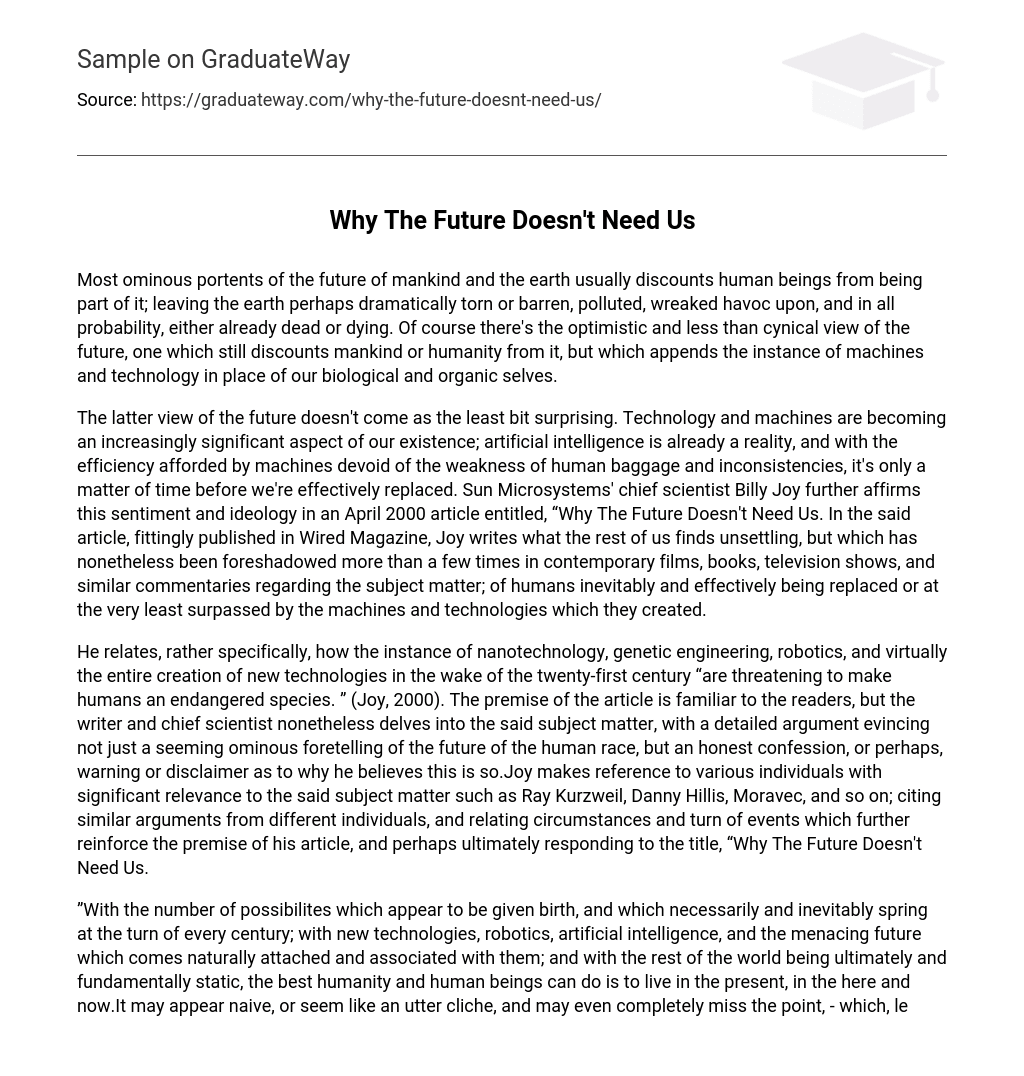Most ominous portents of the future of mankind and the earth usually discounts human beings from being part of it; leaving the earth perhaps dramatically torn or barren, polluted, wreaked havoc upon, and in all probability, either already dead or dying. Of course there’s the optimistic and less than cynical view of the future, one which still discounts mankind or humanity from it, but which appends the instance of machines and technology in place of our biological and organic selves.
The latter view of the future doesn’t come as the least bit surprising. Technology and machines are becoming an increasingly significant aspect of our existence; artificial intelligence is already a reality, and with the efficiency afforded by machines devoid of the weakness of human baggage and inconsistencies, it’s only a matter of time before we’re effectively replaced. Sun Microsystems’ chief scientist Billy Joy further affirms this sentiment and ideology in an April 2000 article entitled, “Why The Future Doesn’t Need Us. In the said article, fittingly published in Wired Magazine, Joy writes what the rest of us finds unsettling, but which has nonetheless been foreshadowed more than a few times in contemporary films, books, television shows, and similar commentaries regarding the subject matter; of humans inevitably and effectively being replaced or at the very least surpassed by the machines and technologies which they created.
He relates, rather specifically, how the instance of nanotechnology, genetic engineering, robotics, and virtually the entire creation of new technologies in the wake of the twenty-first century “are threatening to make humans an endangered species. ” (Joy, 2000). The premise of the article is familiar to the readers, but the writer and chief scientist nonetheless delves into the said subject matter, with a detailed argument evincing not just a seeming ominous foretelling of the future of the human race, but an honest confession, or perhaps, warning or disclaimer as to why he believes this is so.Joy makes reference to various individuals with significant relevance to the said subject matter such as Ray Kurzweil, Danny Hillis, Moravec, and so on; citing similar arguments from different individuals, and relating circumstances and turn of events which further reinforce the premise of his article, and perhaps ultimately responding to the title, “Why The Future Doesn’t Need Us.
”With the number of possibilites which appear to be given birth, and which necessarily and inevitably spring at the turn of every century; with new technologies, robotics, artificial intelligence, and the menacing future which comes naturally attached and associated with them; and with the rest of the world being ultimately and fundamentally static, the best humanity and human beings can do is to live in the present, in the here and now.It may appear naive, or seem like an utter cliche, and may even completely miss the point, – which, let us hope it doesn’t – but the article implicitly addresses and reminds us how precious the present is, and how we should, in turn, try to make the most of it. So let the future come, let tomorrow worry itself, and let scientists like Billy Joy contemplate on why the future ultimately doesn’t need us.





